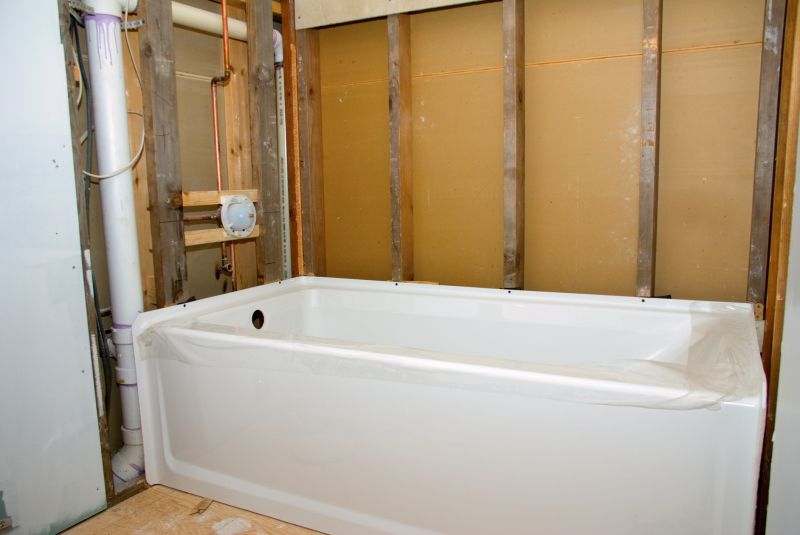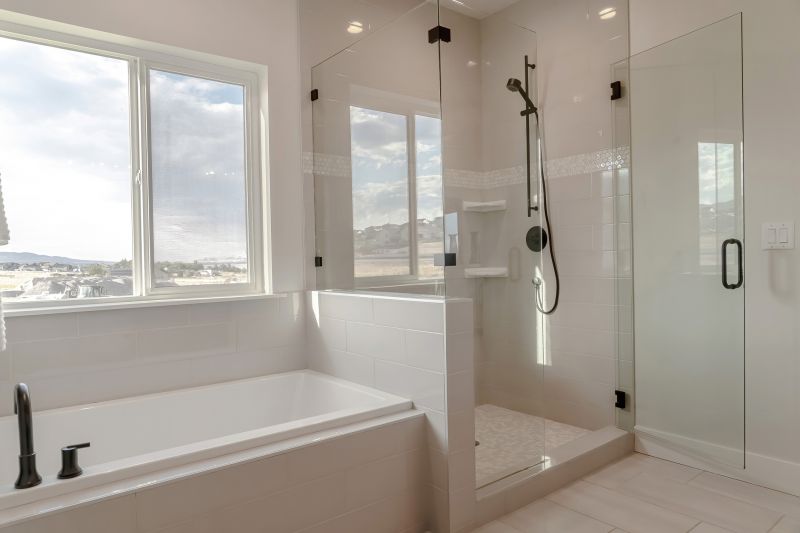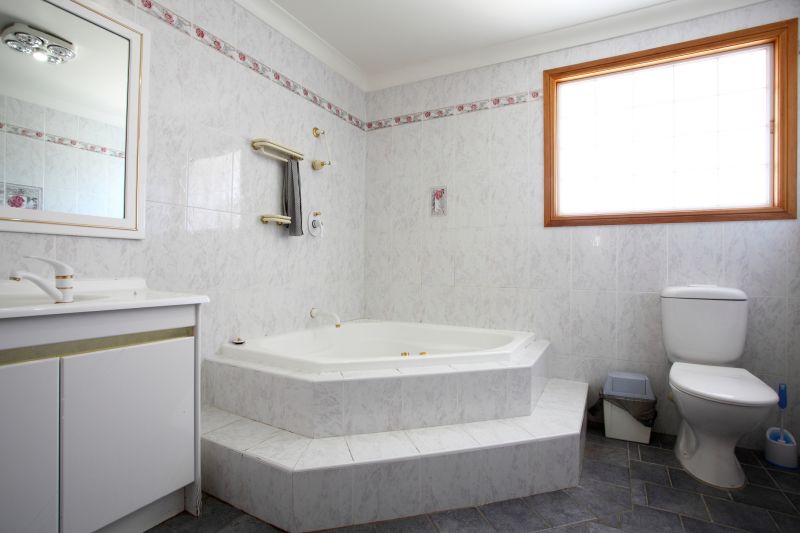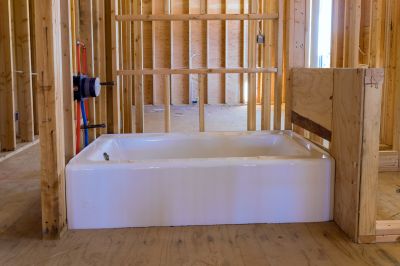Optimal Seasons for Bathtub Installations
Choosing the optimal time for bathtub installations involves considering seasonal weather patterns, project complexity, and scheduling availability. Proper timing can ensure smoother installation processes and reduce potential delays caused by adverse conditions.
Spring offers moderate weather conditions, making it ideal for indoor renovations like bathtub installations. Longer daylight hours also facilitate efficient project completion.
Summer provides extended daylight and warmer temperatures, which can accelerate drying times and reduce scheduling conflicts.
Fall can be suitable for installations before winter, with milder weather and less likelihood of scheduling disruptions.
Winter may pose challenges due to cold temperatures and potential weather-related delays, especially in regions with harsh winters.

A professional installation underway, showcasing precision and quality craftsmanship.

A finished bathtub installation highlighting a clean and modern design.

Essential tools used for precise bathtub installation.

Ways to make Bathtub Installations work in tight or awkward layouts.

Popular materials for Bathtub Installations and why they hold up over time.

Simple add-ons that improve Bathtub Installations without blowing the budget.
| Season | Ideal for Bathtub Installations |
|---|---|
| Spring | Yes, due to moderate weather and longer days. |
| Summer | Yes, with warm temperatures and extended daylight. |
| Fall | Yes, before winter weather sets in. |
| Winter | Generally not recommended due to cold and potential delays. |
| Late Spring | Optimal for scheduling and material availability. |
| Early Fall | Good for avoiding winter weather disruptions. |
Bathtub installations require careful planning to align with seasonal conditions. Indoor projects, such as bathtub replacements or upgrades, can be scheduled year-round, but outdoor or large-scale renovations benefit from timing during milder weather periods. Proper scheduling ensures the installation process proceeds efficiently, minimizing disruptions and potential weather-related delays.



